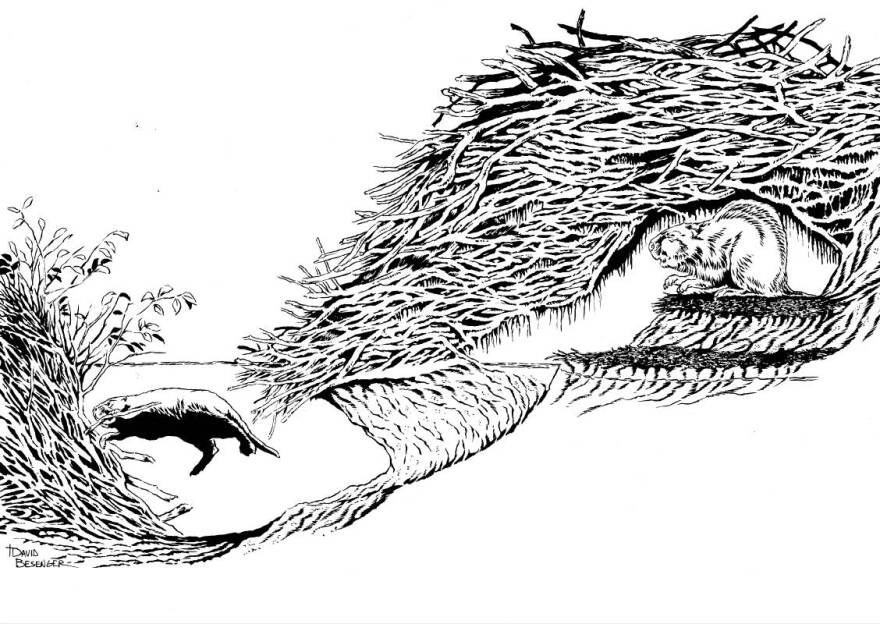This week on Discover Nature, watch for an ecological engineer, and unsung steward of streams.
The American beaver is North America’s largest rodent and builds dams and dens in streams and streambanks for its home.
Their webbed hind feet, with large, flattened tails, dark brown fur, and pronounced front teeth, all suit these mammals well in their streamside habitats.
Beavers are usually nocturnal, but in they become more active during daylight hours in autumn as they gather food and prepare their lodges for winter.
Feeding activities vary with the seasons: a summer diet of corn, pond lilies, and herbaceous plants shifts in fall and winter to more woody vegetation including the bark of twigs and new-growth layer of trees.
Beavers have an intricate relationship to the land and other wildlife, with profound influences on their surroundings.
For centuries, beaver dams have backed up silt-laden waters, forming fertile riparian forest floors, stabilizing stream flow, and slowing runoff.
Beaver dams create ponds, which change water temperatures and other conditions for fish and many kinds of aquatic life.
In Missouri, beavers also excavate dens in high streambanks. These dens are usually accessible only through tunnel entrances below the surface of nearby water.
While they can cause a nuisance in some settings, their value to the ecosystem is vital. If you experience problems with beavers, contact a wildlife professional for advice.
Learn more about the American beaver with the Missouri Department of Conservation’s online field guide.
Discover Nature is sponsored by the Missouri Department of Conservation.




